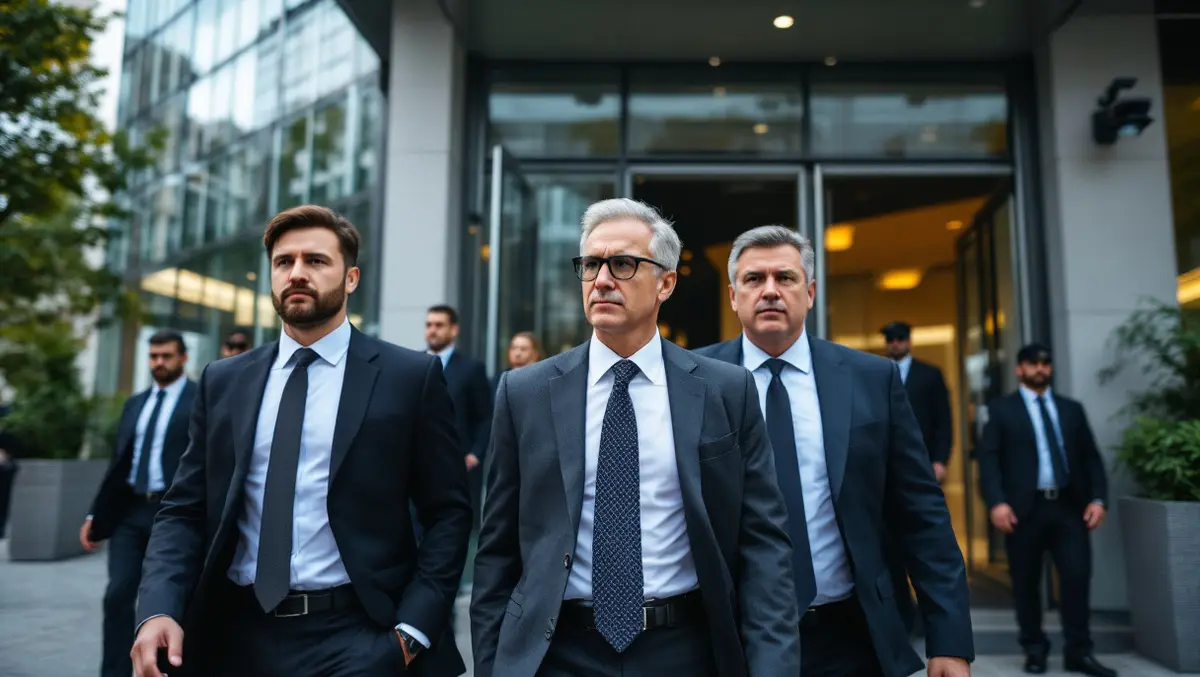
Rising violence prompts firms to boost executive security spend
A new report highlights a significant rise in threats of violence against company executives and sheds light on the growing importance of executive security among large global companies and institutional investors.
The second edition of the World Security Report, commissioned by Allied Universal and G4S, draws on responses from 2,352 chief security officers (CSOs) at medium and large companies spanning 31 countries and totalling over USD $25 trillion in annual revenue. The study includes input from 200 institutional investors managing more than USD $1 trillion in assets.
Rising threats to leadership
A key finding from the global research is that 42% of security chiefs reported a significant increase in threats of violence aimed at company executives over the past two years. This heightened concern is mirrored by the investor community, with 97% of institutional investors emphasising the importance of investing in the security of top executives. Moreover, seven in ten investors assessed that executives' roles in strategy, leadership and innovation represent at least 30% of company value.
The financial and operational implications of physical security incidents have proven substantial. A quarter (26%) of CSOs reported their organisation suffered revenue losses due to security incidents in the last year. Among the companies surveyed, the average loss per incident stood at USD $9 million, with total reported losses approaching USD $1 trillion industry-wide.
Misinformation adds to risk
Misinformation and disinformation have become widespread hazards for companies. Three-quarters (75%) of surveyed CSOs said their companies had been targeted by a misinformation or disinformation campaign within the last year. Additionally, 42% stated that such campaigns motivated at least half of the threat actors against their businesses. Many investors (85%) identified activist groups-which often use these tactics-as increasingly significant physical security risks to both company facilities and executives.
"In a world of increasing polarization, and when mistruths and untruths can be shared instantaneously, companies and their senior leaders face heightened risks. As a CEO, this impacts me personally and professionally. Now more than ever, personal safety is on my mind and the minds of my loved ones. Professionally, I've seen an increase in our customers' concern for the safety of their employees," said Steve Jones, Allied Universal global chairman and CEO.
Financial impact of incidents
The concrete effects of security breaches extend to the value of public companies. According to surveyed investors, a physical security incident could potentially reduce a publicly listed company's value by up to 32%, which is a 3% increase compared to 2023.
"The ramifications of a security incident can be considerable and go beyond taking a short-term financial hit. Investors say the impact can be much more damaging and long-lasting, particularly when reputation and shareholder value is concerned. Given how high the stakes are, business leaders are increasingly recognizing that robust physical security is a corporate value driver and should be central to their corporate governance and risk management strategy," said Ashley Almanza, executive chairman of G4S, Allied Universal's international business.
Security responses and future trends
The report details a range of security measures adopted by companies to mitigate these growing threats. Forty-nine percent of security chiefs indicated enhancements to security procedures, including more thorough background checks and increased screening for firearms or explosives. Forty-five percent are conducting tailored risk assessments for leaders, such as pre-event checks and travel security management. Monitoring of online threats (44%) and leader preparedness training (40%)-such as self-defence and de-escalation-are also being implemented. Additionally, a third of companies surveyed have provided close security personnel and personal protective equipment for executives, with a quarter extending these measures to family members.
Looking to 2026, economic instability is cited by 44% of CSOs as the most significant hazard to security. Other external threats expected to increase include geopolitical tensions affecting supply chains (78%), climate change (33%), and disruption to energy supplies (30%). External fraud, theft of company property, and malicious damage are all predicted to rise, narrowing the gap with internal threats such as leaking sensitive information and unauthorised access to resources.
Key drivers of intentional insider threats are reported as misinformation or external radicalisation (39%), financial stress or debt (37%), and dissatisfaction with pay (36%).
Budget priorities shift
Sixty-six percent of security chiefs expect physical security budgets to increase over the next year. Investments will focus on new technology and infrastructure (47%) as well as on employee security training and upskilling (45%). Analysts suggest this reflects an alignment with investor preferences, as 92% believe physical security should have a higher strategic priority, and many view fraud and information leaks as chief risks to address.
Despite these concerns and expectations for increased budget, 80% of surveyed CSOs reported that company leaders remain more concerned with cyber security than with physical security risks.


